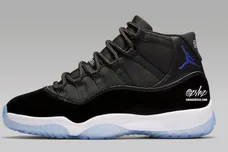Paul Wall is Houston royalty. The rapper dominated the mixtape scene alongside Chamillionaire in the late 90s and early 2000s. He broke out as a commercial force in the mid-2000s, and has remained a fixture on the scene ever since. Paul Wall recently shocked fans, however, when he dove into his youth and his experiences growing up in Texas. He told the Breakfast Club that he grew up in a very diverse neighborhood, and as such, was unaware of his own ethnicity for years.
Paul Wall told the radio panel that he wasn't made privy to his whiteness until he was in middle school. "I didn't know I was white 'til white people told me I was white," the rapper said. "They was like, 'You white. Why you talk and act like that? You white. And I'm like, what do you mean?'" Wall felt the confusion was a result of the varied groups of kids he hung out with prior to attending school. "I mean, all my friends were Black or Mexican or Asian," he asserted. "I lived in a very diverse neighborhood. There were white people there, but it was Mexican, Black, Vietnamese, Indian … A lot of everything."
Read More: Top 10 Best Sneakers Of 2024
Paul Wall Never Modeled Himself After White Rappers
Paul Wall pointed to his bond with Chamillionaire as evidence. He noted that the "Ridin" rapper was born to a Nigerian father, which he learned while the two were attending high school together. Wall did reveal that his mother took a DNA test to determine the family's exact genealogy, however. She discovered that she was 3% African American, which led to Wall cracking a joke about what she can and can't get away with. "I know she can't say the N-word, that ain't enough for her to say the N-word," he quipped.
Paul Wall discussed the "white rapper" label during a 2020 interview with Complex. He told the outlet that he never tried to emulate the styles of other white rappers, and instead listened to Black artists like Big Pokey, Big Moe and Mr. Scarface. "I never thought of it like this is something I shouldn’t be doing," he opined. "Because even though white rappers were out, I wasn’t following them. No disrespect intended, I just didn’t follow that lane, I followed this one." Paul Wall's iconic status in the game proves he made the right call.
Read More: Ice Cube Opens Up About His New Album “Man Down,” Legacy, And The Future Of West Coast Hip-Hop
[via]









